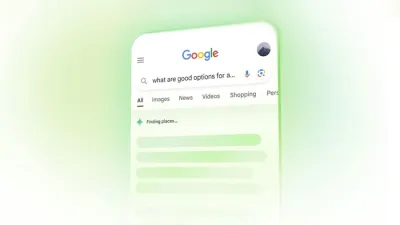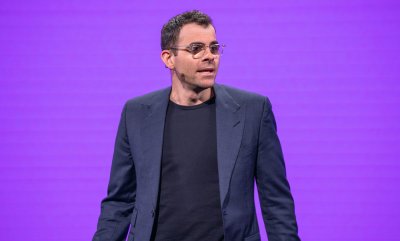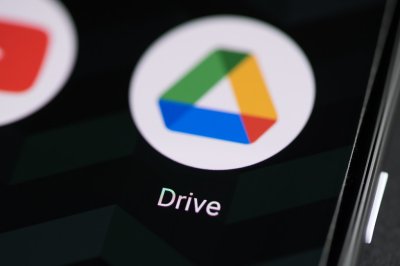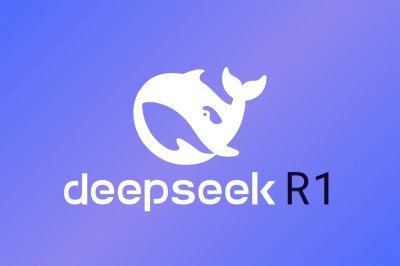Google Defends AI Summaries Amidst Lawsuit, Sparking Debate on the Future of Search and Content Ownership
@devadigax15 Sep 2025

Google’s aggressive integration of AI-powered summaries into its search results is facing increasing scrutiny, highlighted by a recent lawsuit filed by Penske Media Corporation, the parent company of Rolling Stone. The tech giant defended its practices at an AI summit in New York on Monday, sparking a wider conversation about the delicate balance between AI innovation and the rights of content creators. The core of the issue revolves around Google's AI Overviews, which condense articles into brief summaries displayed prominently within search results, often before users click through to the original source.
The lawsuit, the specifics of which remain partially undisclosed, alleges that Google's use of AI summaries infringes on Penske Media's intellectual property rights. It represents a growing concern among publishers and content creators who fear that Google's AI technology is diminishing the value of their original work by providing free, readily accessible summaries that effectively cannibalize clicks and ad revenue. This isn't just about lost revenue, however; the heart of the matter lies in the question of fair use and the potential for AI to undermine the economic viability of online journalism and content creation.
Google’s response, delivered by a senior executive whose name was not specified in the initial report, emphasized the benefits of AI Overviews for users. The executive purportedly argued that these summaries provide concise and helpful information, allowing users to quickly grasp the essence of an article before deciding whether to read the full piece. This argument hinges on the assumption that the AI summaries serve as a gateway to the original content, driving traffic back to the publishers' websites. However, critics argue that this is a simplistic and ultimately misleading justification.
Many observers believe that the actual impact of AI Overviews is far more complex. While some users might indeed click through to the original article after reading the summary, a significant portion may find the summary sufficient, foregoing the need to visit the original source entirely. This loss of engagement directly translates to lost advertising revenue for publishers, a crucial element in the financial model of many online publications. Furthermore, the algorithm's bias and potential for inaccuracies raise concerns about the reliability of the information presented to users, and the potential for negative impact on the reputation of the original articles.
This legal challenge is not an isolated incident. The tension between AI advancements and copyright law is intensifying across various sectors, not just in online publishing. Artists, musicians, and writers are increasingly grappling with the use of their work to train AI models and generate new content, raising fundamental questions about ownership, compensation, and creative freedom. The outcome of the Penske Media lawsuit could set a significant precedent, influencing how AI is used in search engines and potentially setting guidelines for the future of AI-generated content.
The debate extends beyond legal implications. It touches upon the very nature of information dissemination in the digital age. Search engines, like Google, have become the primary gateways to online information, and their algorithms fundamentally shape the user experience and access to knowledge. The increasing reliance on AI-powered tools raises concerns about algorithmic bias, the potential for manipulation, and the broader societal implications of entrusting such a significant role to automated systems.
Moving forward, a crucial element will be the development of clearer guidelines and regulations surrounding the use of copyrighted material in AI training and output. This requires collaboration between tech companies, lawmakers, and content creators to establish fair and equitable frameworks that protect the rights of creators while fostering technological innovation. The challenge lies in striking a balance – encouraging the development of beneficial AI tools without jeopardizing the economic viability and creative integrity of original content. The case against Google, therefore, is not merely a legal battle; it is a pivotal moment in the ongoing conversation about the future of information, creativity, and the role of AI in shaping both.
The lawsuit, the specifics of which remain partially undisclosed, alleges that Google's use of AI summaries infringes on Penske Media's intellectual property rights. It represents a growing concern among publishers and content creators who fear that Google's AI technology is diminishing the value of their original work by providing free, readily accessible summaries that effectively cannibalize clicks and ad revenue. This isn't just about lost revenue, however; the heart of the matter lies in the question of fair use and the potential for AI to undermine the economic viability of online journalism and content creation.
Google’s response, delivered by a senior executive whose name was not specified in the initial report, emphasized the benefits of AI Overviews for users. The executive purportedly argued that these summaries provide concise and helpful information, allowing users to quickly grasp the essence of an article before deciding whether to read the full piece. This argument hinges on the assumption that the AI summaries serve as a gateway to the original content, driving traffic back to the publishers' websites. However, critics argue that this is a simplistic and ultimately misleading justification.
Many observers believe that the actual impact of AI Overviews is far more complex. While some users might indeed click through to the original article after reading the summary, a significant portion may find the summary sufficient, foregoing the need to visit the original source entirely. This loss of engagement directly translates to lost advertising revenue for publishers, a crucial element in the financial model of many online publications. Furthermore, the algorithm's bias and potential for inaccuracies raise concerns about the reliability of the information presented to users, and the potential for negative impact on the reputation of the original articles.
This legal challenge is not an isolated incident. The tension between AI advancements and copyright law is intensifying across various sectors, not just in online publishing. Artists, musicians, and writers are increasingly grappling with the use of their work to train AI models and generate new content, raising fundamental questions about ownership, compensation, and creative freedom. The outcome of the Penske Media lawsuit could set a significant precedent, influencing how AI is used in search engines and potentially setting guidelines for the future of AI-generated content.
The debate extends beyond legal implications. It touches upon the very nature of information dissemination in the digital age. Search engines, like Google, have become the primary gateways to online information, and their algorithms fundamentally shape the user experience and access to knowledge. The increasing reliance on AI-powered tools raises concerns about algorithmic bias, the potential for manipulation, and the broader societal implications of entrusting such a significant role to automated systems.
Moving forward, a crucial element will be the development of clearer guidelines and regulations surrounding the use of copyrighted material in AI training and output. This requires collaboration between tech companies, lawmakers, and content creators to establish fair and equitable frameworks that protect the rights of creators while fostering technological innovation. The challenge lies in striking a balance – encouraging the development of beneficial AI tools without jeopardizing the economic viability and creative integrity of original content. The case against Google, therefore, is not merely a legal battle; it is a pivotal moment in the ongoing conversation about the future of information, creativity, and the role of AI in shaping both.
Comments
Related News

Beyond the Mic: Instagram Denies Eavesdropping, But AI's Predictive Power Redefines Digital Privacy
@devadigax | 01 Oct 2025
@devadigax | 01 Oct 2025

Microsoft 365 Premium Redefines AI Productivity, Bundling Copilot to Rival ChatGPT Plus Pricing
@devadigax | 01 Oct 2025
@devadigax | 01 Oct 2025

Wikimedia's Grand Vision: Unlocking Its Vast Data Universe for Smarter Discovery by Humans and AI
@devadigax | 30 Sep 2025
@devadigax | 30 Sep 2025

Google Drive Fortifies Defenses with New AI-Powered Ransomware Detection
@devadigax | 29 Sep 2025
@devadigax | 29 Sep 2025

The DeepSeek Phenomenon: Unpacking the Viral AI Chatbot from a Leading Chinese Lab
@devadigax | 29 Sep 2025
@devadigax | 29 Sep 2025
 AI Tool Buzz
AI Tool Buzz